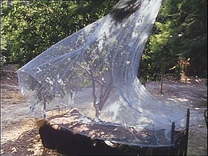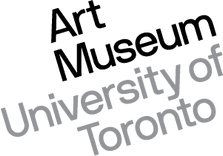The Dream

The Dream
Mohamad MalasShot in 1980-81, the film is composed of interviews with different Palestinian refugees including women, children, the elderly, and militants from the refugee camps of Sabra, Shatila, Bourj el-Barajneh, Ain al-Hilweh, and Rashidieh in Lebanon. In the interviews, Mohamad Malas questions his subjects about their dreams at night. The dreams always converge on Palestine: a woman recounts her dreams about winning the war; a Fedai fighter of bombardment and martyrdom; a man recalls one where he meets and is ignored by Gulf emirs. During filming, Malas lived in the camps and conducted interviews with more than 400 people. In 1982, the Sabra and Shatila massacres took place, taking the lives of several people he interviewed. He stopped working on the project. He returned to it in 1986 and edited the many hours of footage he had gathered into this 45-minute film, released in 1987.
2 Sussex Ave, Toronto, ON M5S 1J5
Sidewalk-level entrance, elevator and ramp available, door width 32 inches, no automatic doors. No accessible parking on-site. Four wheelchair accessible seats in the cinema. 15 step-free seats in row 9. Accessible gender-neutral washroom located on the 2nd and 3rd floor.
For a map to Innis Town Hall, click here
The poet is the one who makes the light.
Jackie Wang
In Jackie Wang’s Carceral Capitalism there is a part called “The Prison Abolitionist Imagination” where Jackie presents a poem by Mahmoud Darwish, the iconic Palestinian poet. In the poem, “In the Presence of Absence,” Darwish writes from the perspective of the “poet-prisoner” who is addressing the guard: “Dreaming is my profession while yours is pointless eavesdropping on an unfriendly conversation between my freedom and me.”
Taking up the prompt of the curatorial residency, “Rehearsing Refusal,” presented to us by Images Festival’s Programming Director Jaclyn Quaresma, what first came to mind is dreaming as a form of liberation. Dreams and daydreaming defy forms of containment, in direct opposition of what a jailer does.
The Dream, a film by Mohammad Malas, is filmed in the Palestinian refugee camps of Sabra and Shatila, shortly before the massacre of 1982. Malas’s documentary focuses on dreams and dreaming by documenting Palestinians recounting their dreams. In this way, the film plays on a double register, whereby Palestinians recall the reality of their everyday lives transposed into their dreams, nightmares, and premonitions. Ultimately, these dreams tell the story of longing for our land: the dreams make the light.
Malas is a prolific filmmaker, working in art, fiction, and documentary. After teaching philosophy at Damascus University in the 1960s, he turned to film and has since produced numerous award-winning works, notably a series of powerful documentaries on political prisoners in the Arab world. He has also published novels and writes frequently on Arab cinema.
Please join us for a conversation between Jackie Wang and Nasrin Himada following the screening.
Mohamad Malas
Mohamad Malas was born in 1945 in Quneitra in the Golan Heights. He is a prominent Syrian filmmaker whose films garnered him international recognition. Malas is among the first auteur filmmakers in Syrian cinema. Malas worked as a schoolteacher between 1965 and 1968 before moving to Moscow to study filmmaking at the Gerasimov Institute of Cinematography (VGIK). Upon graduating, he worked in Syrian television and later produced multiple lauded feature films and documentaries.


